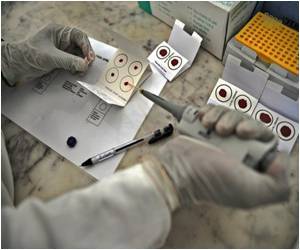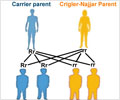The hope of University of Guelph researchers is to help protect newborns and older patients against more severe effects of jaundice.

Their discovery might ultimately lead to an alternative treatment for jaundice, such as a new drug or supplement, says Daniel Kim, a research technician in Guelph's Department of Biomedical Sciences.
He is lead author of a paper published recently in the journal Toxicology and Applied Pharmacology. Co-authors are biomedical sciences professor Gordon Kirby, former research associate Monica Antenos, and Prof. Jim Squires of U of G's Department of Animal and Poultry Science.
Almost two out of three newborns contract jaundice, with its telltale skin yellowing. Normal treatment involves use of ultraviolet light. UV treatment doesn't always work.
Although the condition is usually benign, severe cases can cause permanent brain damage and lead to cerebral palsy and hearing loss.
Jaundice can also affect people with liver disease or increased breakdown of red blood cells, as in malaria.
Advertisement
Other researchers had already found a naturally occurring enzyme that breaks down bilirubin. Called cytochrome P450 2A5, the enzyme is known to increase in people with liver ailments.
Advertisement
The U of G researchers used cultured liver cells from mice for their study.
Scientists need to determine safe and effective levels of the enzyme before developing any treatment, said Kirby.
"We need to fine-tune our ability to manipulate this enzyme and fully understand its role in bilirubin removal," he said. Kirby has long studied the enzyme's role in nicotine addiction in smokers.
Source-Eurekalert















